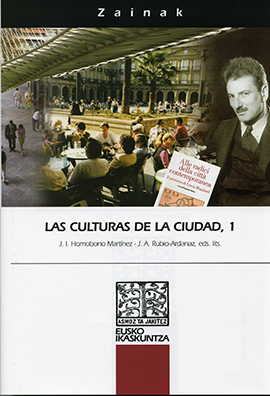La negación de la ciudad como lugar antropológico en la metodología de José Miguel de Barandiarán

JIMENO ARANGUREN, Roldán
- Publication year:
- 2003
- Publication place:
- Donostia-San Sebastián
- ISBN:
- 84-8419-913-4
- ISSN:
- 1137-439X
Summary
José Miguel de Barandiaran (1889-1991), trained during the first third of the 20th century in the anthropologic theories of the German Diffusionist School, observed, from his point of view in the nineteen-twenties, the vertiginous changes that were taking place in rural society. He formulated several questionnaires that encompassed various factors and aspects of popular life in order to capture a culture that was being lost. This task was part of an enormous personal work and was continued by the Etniker Euskalerria Groups in the laborious Ethnographic Atlas of Vasconia. He elaborated an Ethnographic Guide that is applicable in many points to urban ethnography, though this field was ignored in practice, as the analysis of the rural society was prioritised. The application of his methodology has obviated the town as space for anthropologic analysis, and this a characteristic deficiency of his era, since urban anthropology as study discipline dates back only a quarter of a century.Sing up and download the publications of Eusko Ikaskuntza
Are you a registered member?. Access




